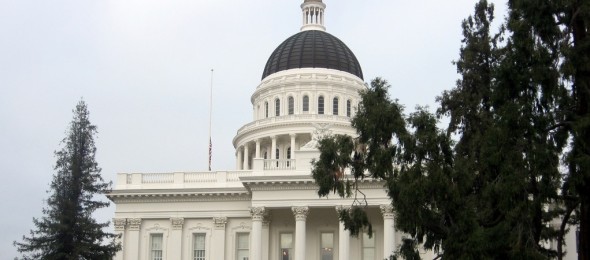The Supreme Court of California has ruled a predispute arbitration provision that requires a consumer to waive the right to seek public injunctive relief is unenforceable. In McGill v. Citibank, N.A., No. S224086 (Cal., April 6, 2017), a California woman, McGill, opened a credit card issued by Citibank in 2001. At the time she opened the credit card account, McGill also agreed to purchase the bank’s credit protector plan designed to waive her credit card balance in the event of her unemployment, serious illness, or injury.
Although McGill’s initial credit card account agreement did not contain an arbitration provision, Citibank made a change in terms in October 2001. The new terms provided for mandatory arbitration of all claims or disputes associated with the account and prohibited consumers from engaging in collective action. Because McGill did not elect to utilize an opt-out provision that was included in Citibank’s new terms, the arbitration agreement became effective in November 2001. In 2005, Citibank once again changed its terms and McGill did not opt out of the new agreement.
In 2008, McGill unfortunately became unemployed. As a result, she filed a claim for benefits under the credit protector plan. Unsatisfied with the results of her claim, McGill filed a putative class-action lawsuit against Citibank in California. In her complaint, McGill accused the credit card issuer of violating numerous state laws and engaging in deceptive advertising practices.
In response to McGill’s lawsuit, Citibank filed a motion to compel the dispute to arbitration based on the terms and conditions included in the updated credit card agreement. A trial court granted the bank’s motion and ordered McGill to individually arbitrate most of her claims against Citibank. According to the trial court, however, McGill’s request for public injunctive relief was not subject to arbitration pursuant to the Broughton-Cruz rule. Under this rule: “Agreements to arbitrate claims for public injunctive relief under the CLRA, the UCL, or the false advertising law are not enforceable in California.” Later, the Court of Appeal reversed and remanded the case for arbitration of all of McGill’s claims based on the United States Supreme Court’s 2011 decision in AT&T Mobility LLC v. Concepcion.
On appeal before the California Supreme Court, McGill asserted “(1) the Court of Appeal erred in finding FAA preemption of the Broughton-Cruz rule, and (2) the arbitration provision is invalid and unenforceable because it waives her right to seek public injunctive relief in any forum.” Because California’s highest court agreed with McGill’s second argument, the court did not address whether the FAA preempted California’s Broughton-Cruz rule.
After reviewing the facts of the case, the Supreme Court of California held:
Having determined that public injunctive relief remains a remedy available to private plaintiffs under the UCL and the false advertising law, as well as under the CLRA, we next conclude that the arbitration provision here at issue is invalid and unenforceable under state law insofar as it purports to waive McGill’s statutory right to seek such relief. Civil Code section 3513 provides: “Anyone may waive the advantage of a law intended solely for his benefit. But a law established for a public reason cannot be contravened by a private agreement.” Consistent with this provision, we have explained that “a party may waive a statutory provision if a statute does not prohibit doing so [citation], the statute’s ‘public benefit …is merely incidental to [its] primary purpose’ [citation], and ‘waiver does not seriously compromise any public purpose that [the statute was] intended to serve’ [citation].” (DeBerard Properties, Ltd. v. Lim (1999) 20 Cal.4th 659, 668-669.) By definition, the public injunctive relief available under the UCL, the CLRA, and the false advertising law, as discussed in Broughton and Cruz, is primarily “for the benefit of the general public.” (Broughton, supra, 21 Cal.4th at p. 1082; see Cruz, supra, 30 Cal.4th at p. 315.) Its “evident purpose,” the court said in Broughton, is “to remedy a public wrong,” “not to resolve a private dispute” (Broughton, at p. 1080), and any benefit to the plaintiff requesting such relief “likely… would be incidental to the general public benefit of enjoining such a practice.” (Id. at p.1080, fn. 5.) Accordingly, the waiver in a predispute arbitration agreement of the right to seek public injunctive relief under these statutes would seriously compromise the public purposes the statutes were intended to serve. Thus, insofar as the arbitration provision here purports to waive McGill’s right to request in any forum such public injunctive relief, it is invalid and unenforceable under California law.
The court went on to distinguish AT&T Mobility LLC v. Concepcion from McGill’s case before ultimately remanding the dispute back to the trial court for a determination regarding whether the remainder of the arbitration provision at issue was also unenforceable under the terms of the credit card agreement.
Photo credit: Padraic. via Foter.com / CC BY-SA














